Play now
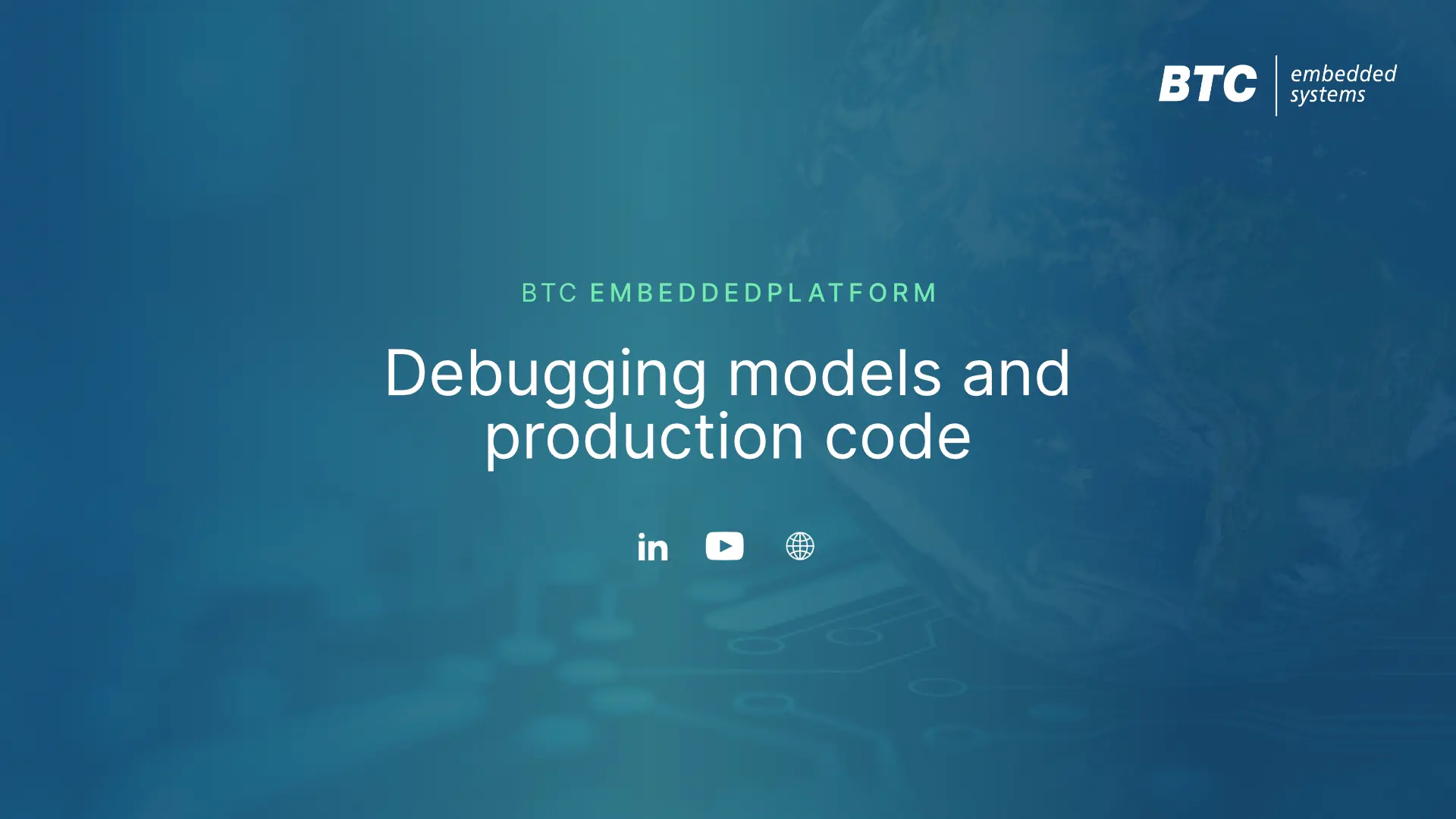
Play Video
Play now

Play Video

Advanced requirements-based testing enhanced by formal methods
You do not need to spend tremendous amount of time and effort for writing expected output values to test cases anymore. Formal Test automates verdict computation in requirement-based testing workflow. As formal requirement is machine-readabile repsesentation, your computer understands the requirement and tells you if a execution record fulfills or violates a formal requirement.
Formal Test is applicable not only to SL-MIL, TL-MIL, SIL and PIL, but also to externally execution records exported from thild party tools.
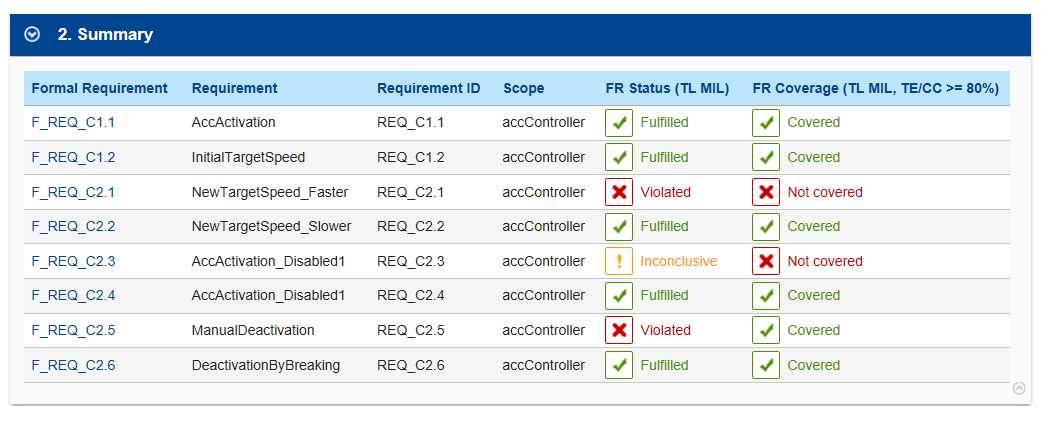
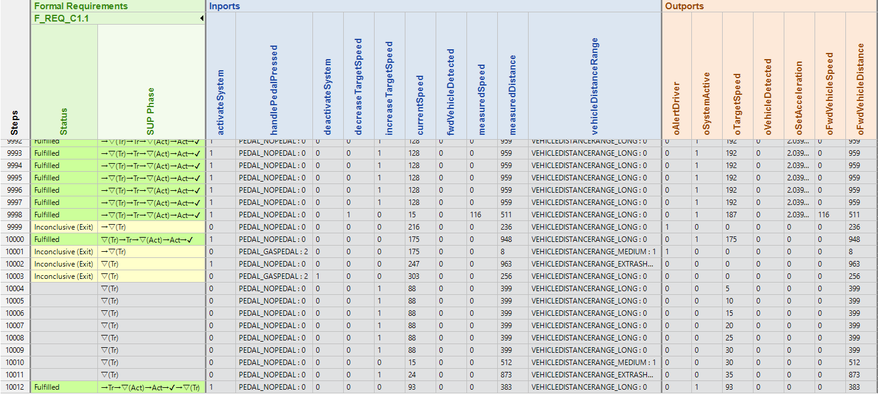
In a traditional requirements-based testing process, each test case is only evaluated against the requirement from which is was derived. But what if test case N°5 violates requirement N°10? Formal Test performs an automatic cross check of all test cases against all formalized requirements. This allows you to detect side effects without any additional testing effort.
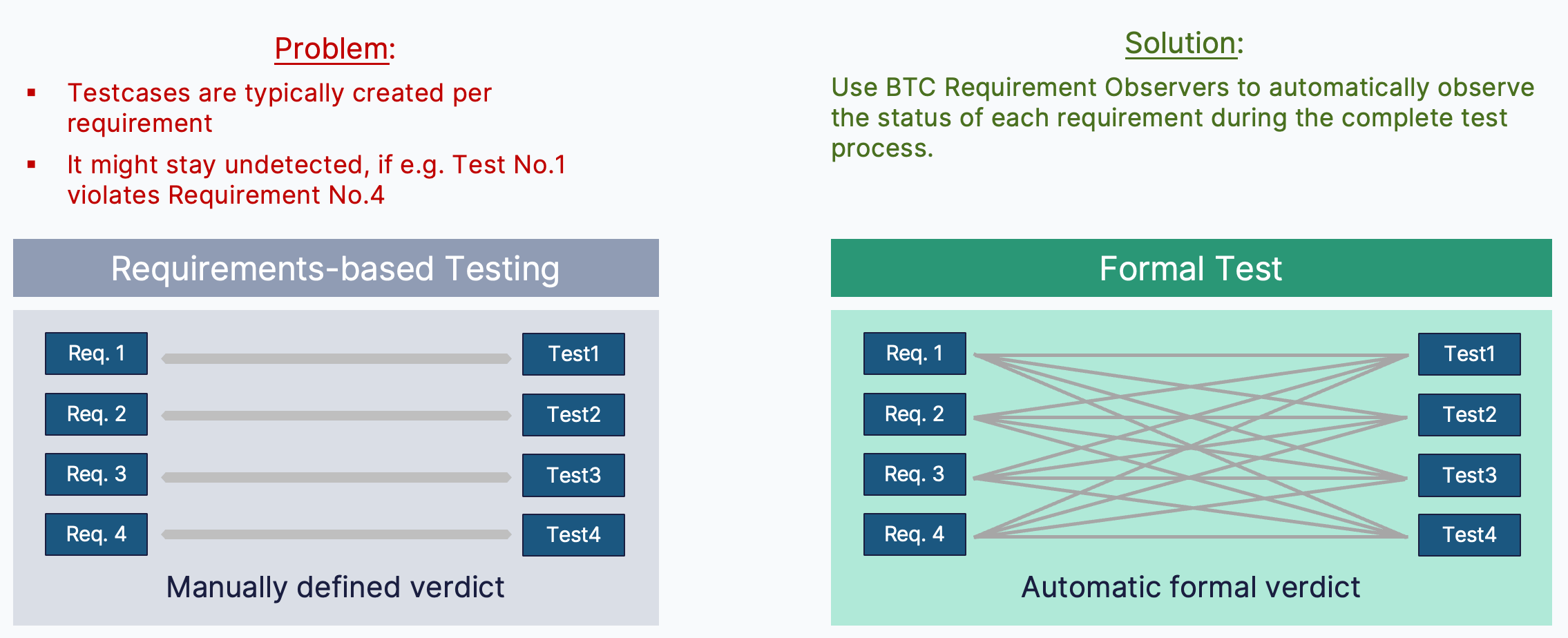
You do not need to maintain traceability between model and requirements any more. Formal requirements allow us to obtain a measurable mathematical definition of requirement coverage. The Formal Requirement Coverage is measured automatially during Formal Test and tells you which requirement was tested by which test cases. Additionally, coverage status of each part of a formal requirement is reported.
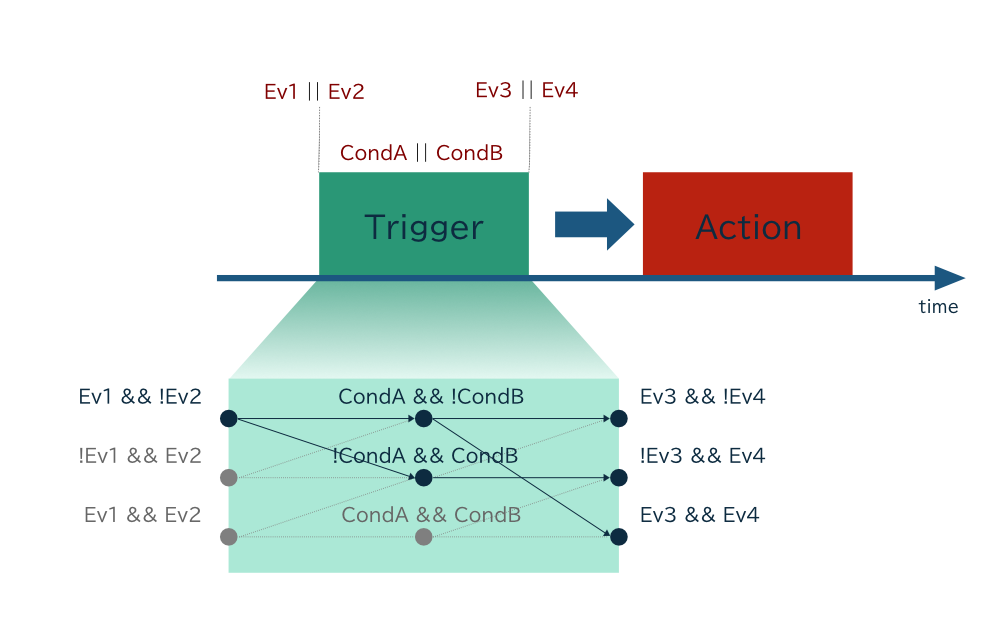
BTC EmbeddedPlatform supports “Hierarchical approach” which makes test and verification (incl. Automatic Test Generation, Formal Verification) more efficient & effective especially when working with large software.
You can test/verify child subsystems without additional effort. After the testing/verification, aggregated reports are automatically generated.
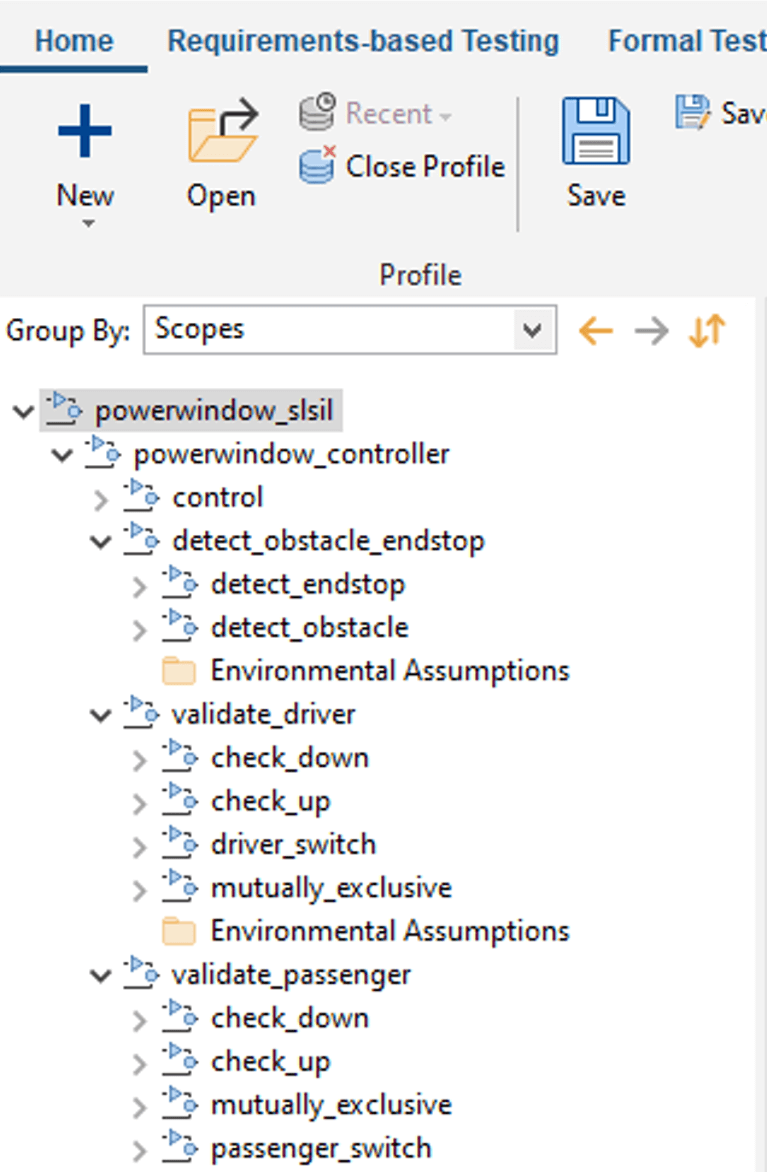
BTC EmbeddedPlatform includes a unique debugging approach by generating self-contained sandboxes. These sandboxes contain a copy of the system-under-test as well as the test case incl. the corresponding calibration values. Depending on the use case, this sandbox can either be a Simulink model, a Microsoft Visual Studio project file or a generic code-based sandbox for other IDEs. These sandboxes can be easily shared with colleagues or customers and make it easy to try out modifications without harming the original files.


With m-API and/or REST-API, you are able to run your test workflows completely automatically. Fully automated Formal Test can be executed sequentially without user interaction.
With an off-the-shelf support for Continuous Integration/Continuous Deployment such as Jenkins, a powerful and flexible REST API and the availability of a Linux-based container image, BTC EmbeddedPlatform is ready for all your future test automation needs, on your own servers or even in the cloud.
If you would like to try out our tools, we will gladly provide an evaluation license free of charge. Evaluations include a free launch workshop and also provide an opportunity for you to meet one-on-one with our support and engineering teams.
Do you have any questions or want to see our tools in action? If so, please use the link below to schedule a meeting, where a member of our engineering team will be happy to show you the features and use cases and directly answer any questions you might have.
If you would like to try out our tools, we will gladly provide an evaluation license free of charge. Evaluations include a free launch workshop and also provide an opportunity for you to meet one-on-one with our support and engineering teams.
Do you have any questions or want to see our tools in action? If so, please use the link below to schedule a meeting, where a member of our engineering team will be happy to show you the features and use cases and directly answer any questions you might have.
Sharing insights on embedded software development, model-based design, automatic code generation and ISO 26262 compliant testing.

Yatish Chitluri
Oldenburg, Germany

Spruha Pingale
Oldenburg, Germany

Thabo Krick
Oldenburg, Germany
Regression Test

Yatish Chitluri
Oldenburg, Germany
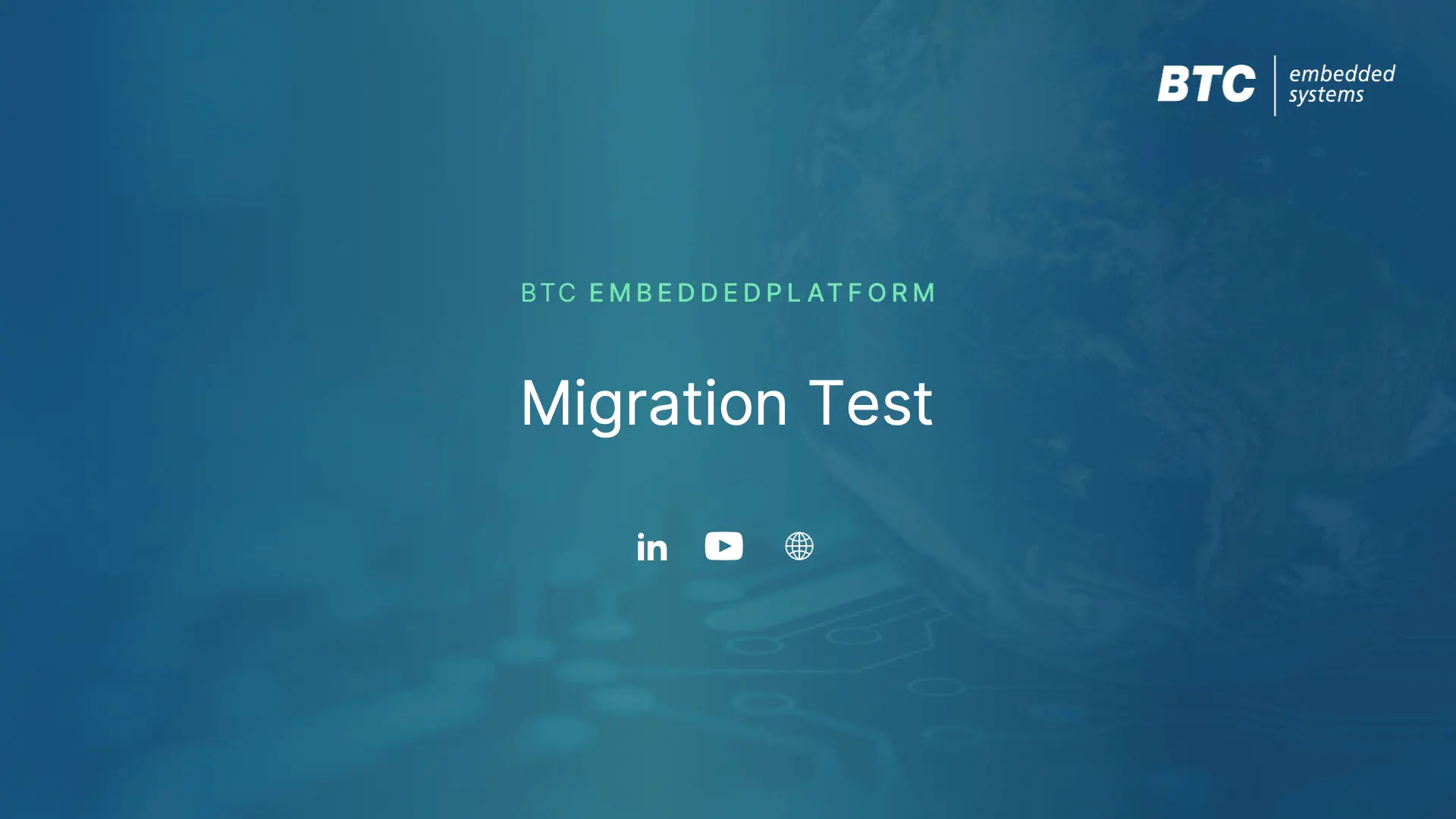

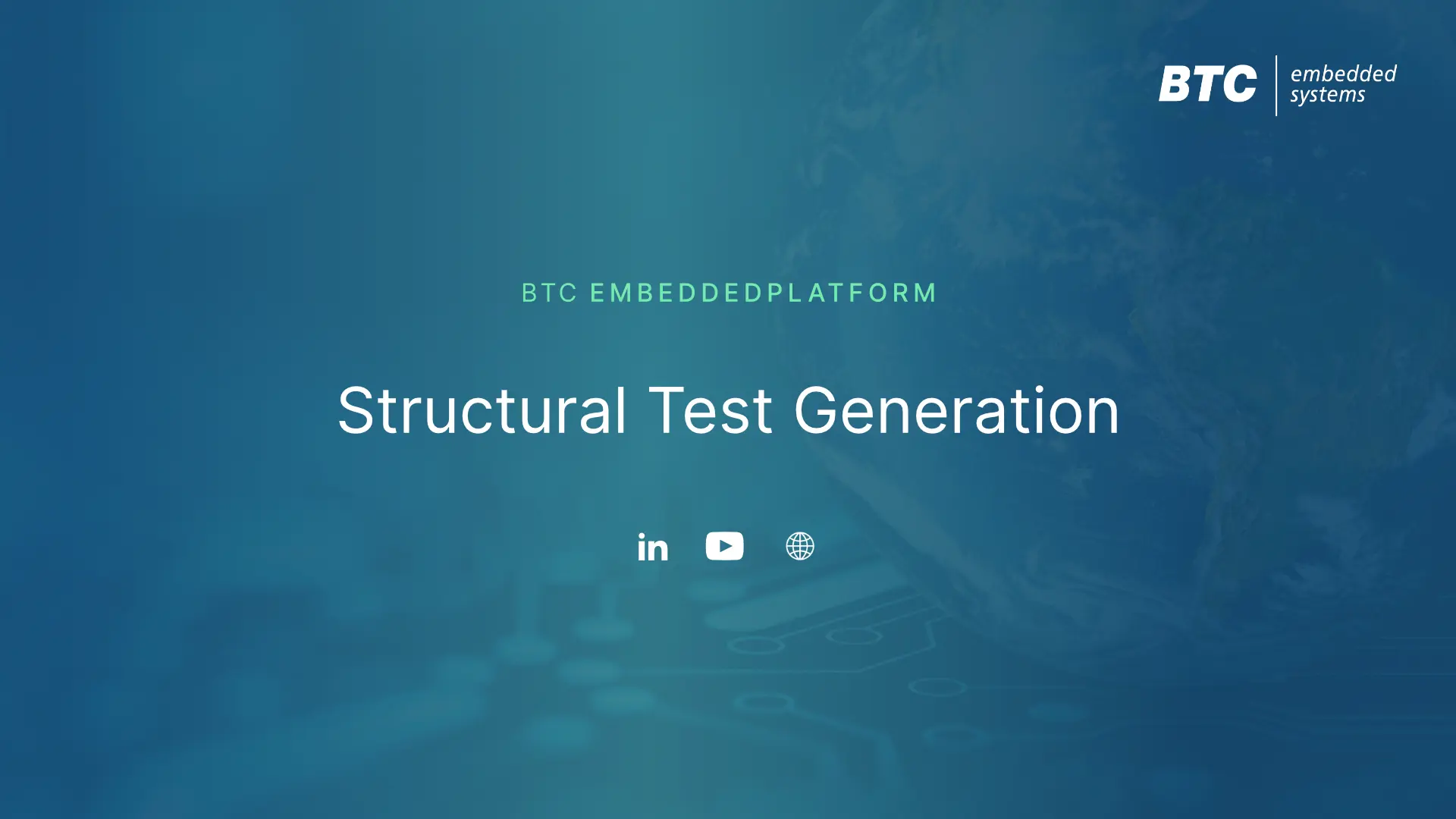

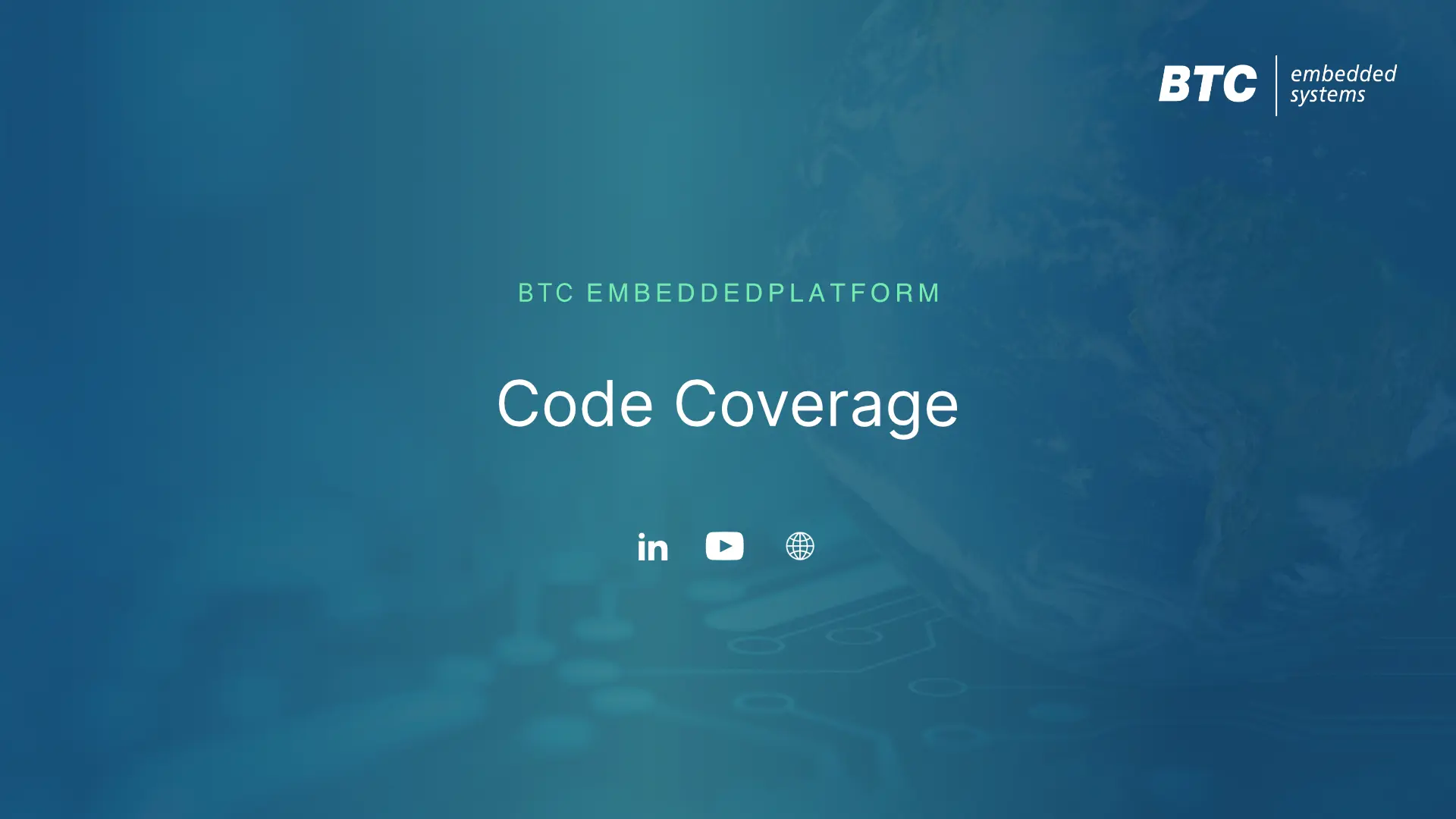

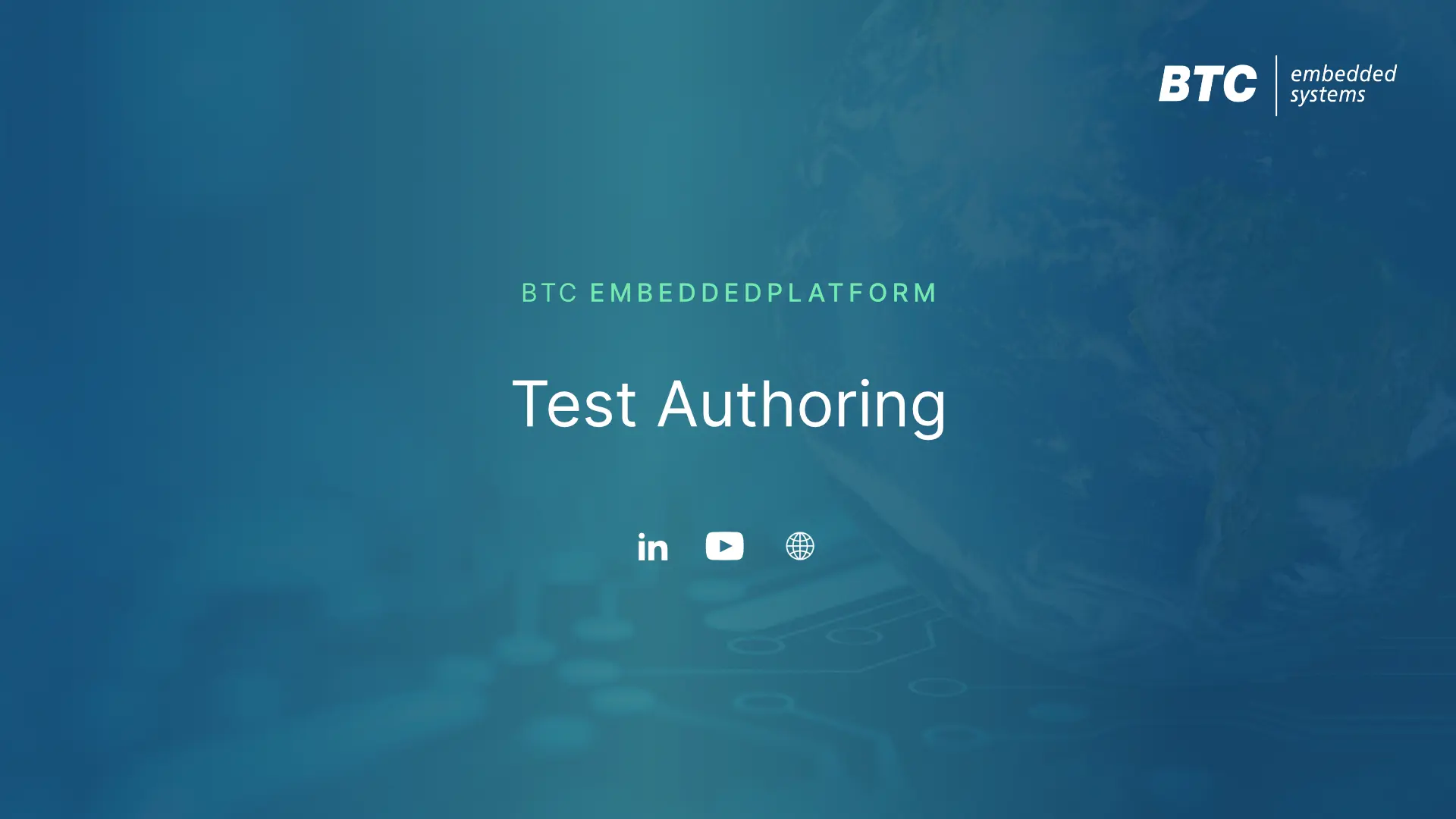

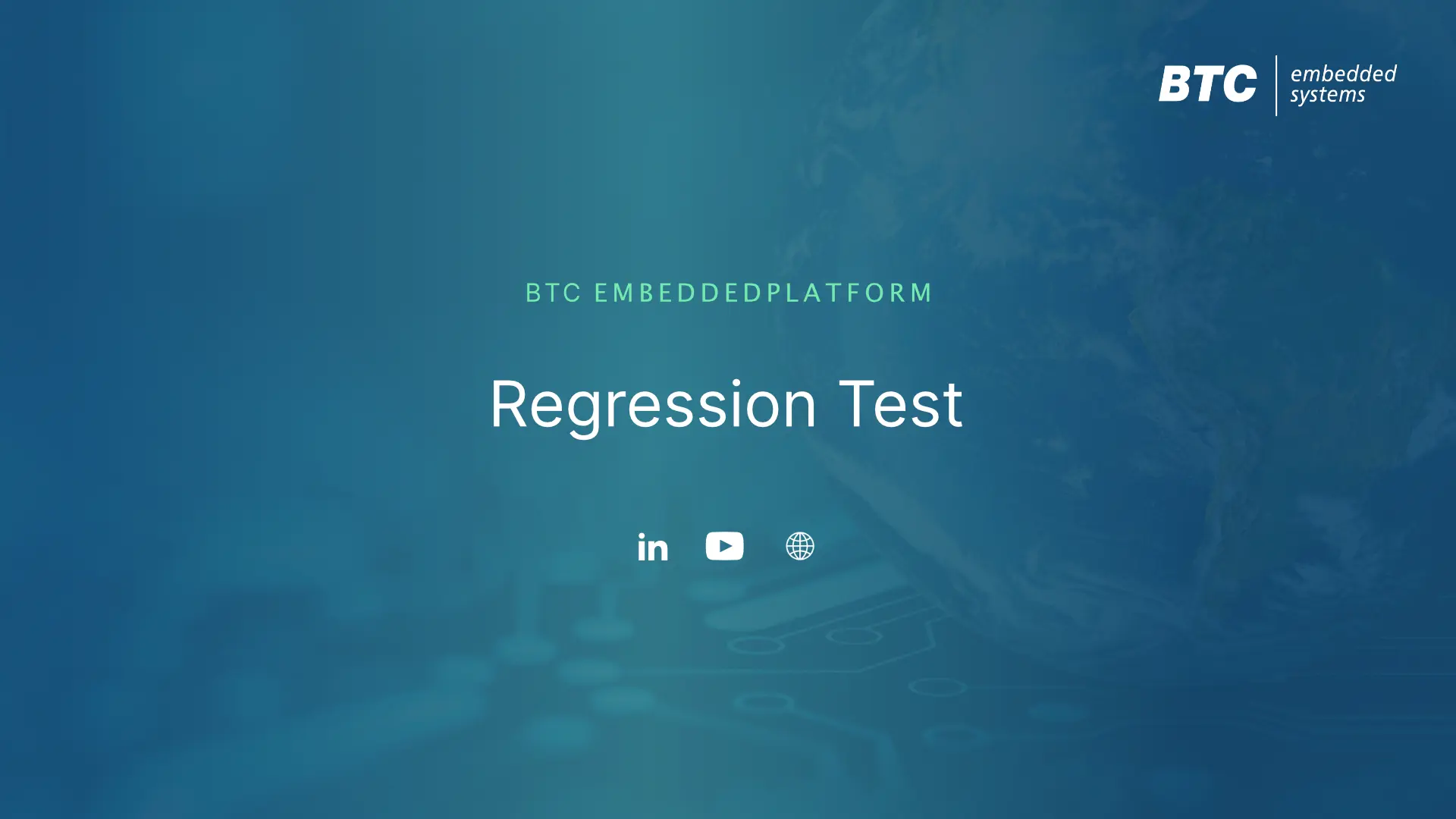



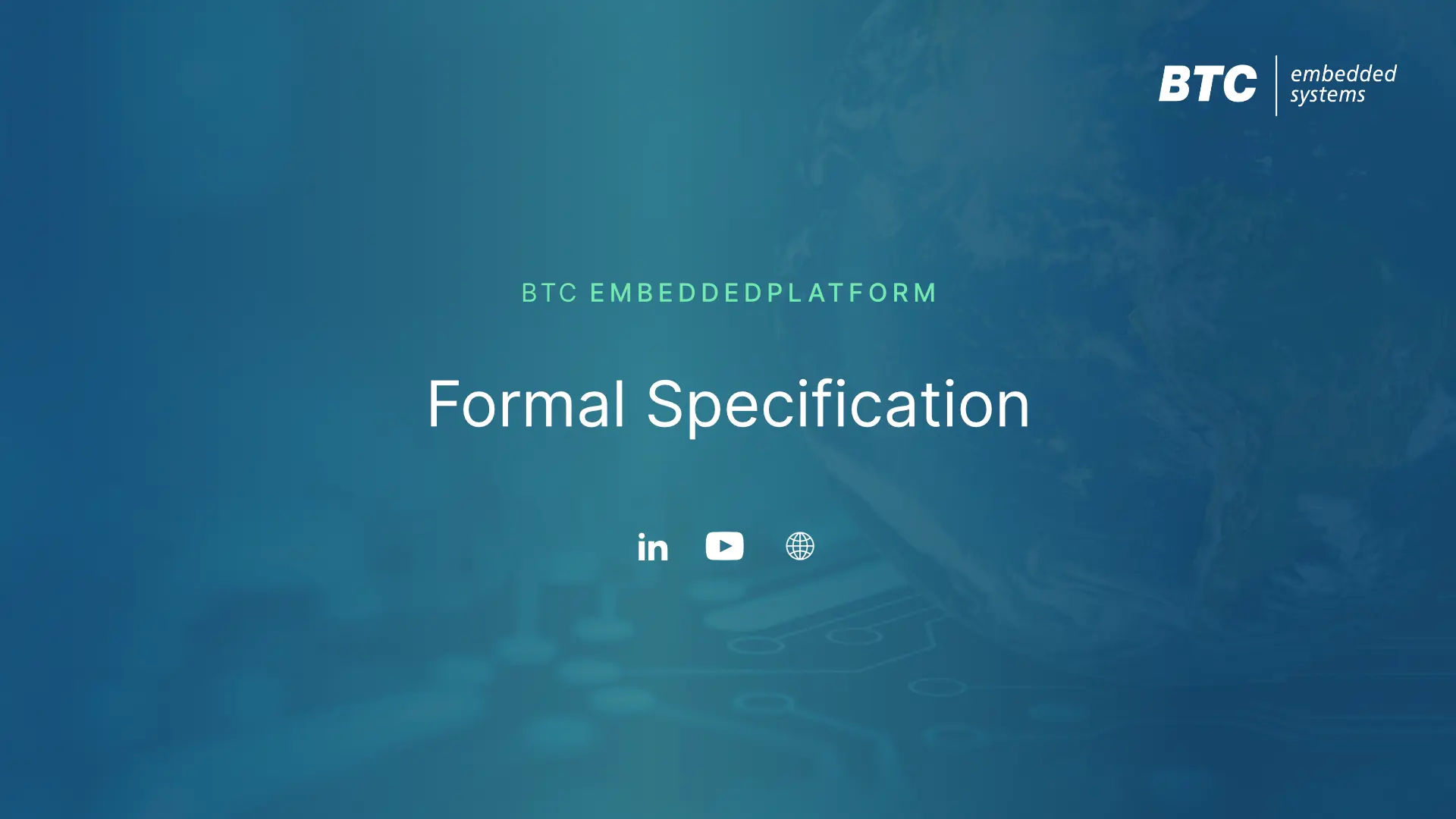



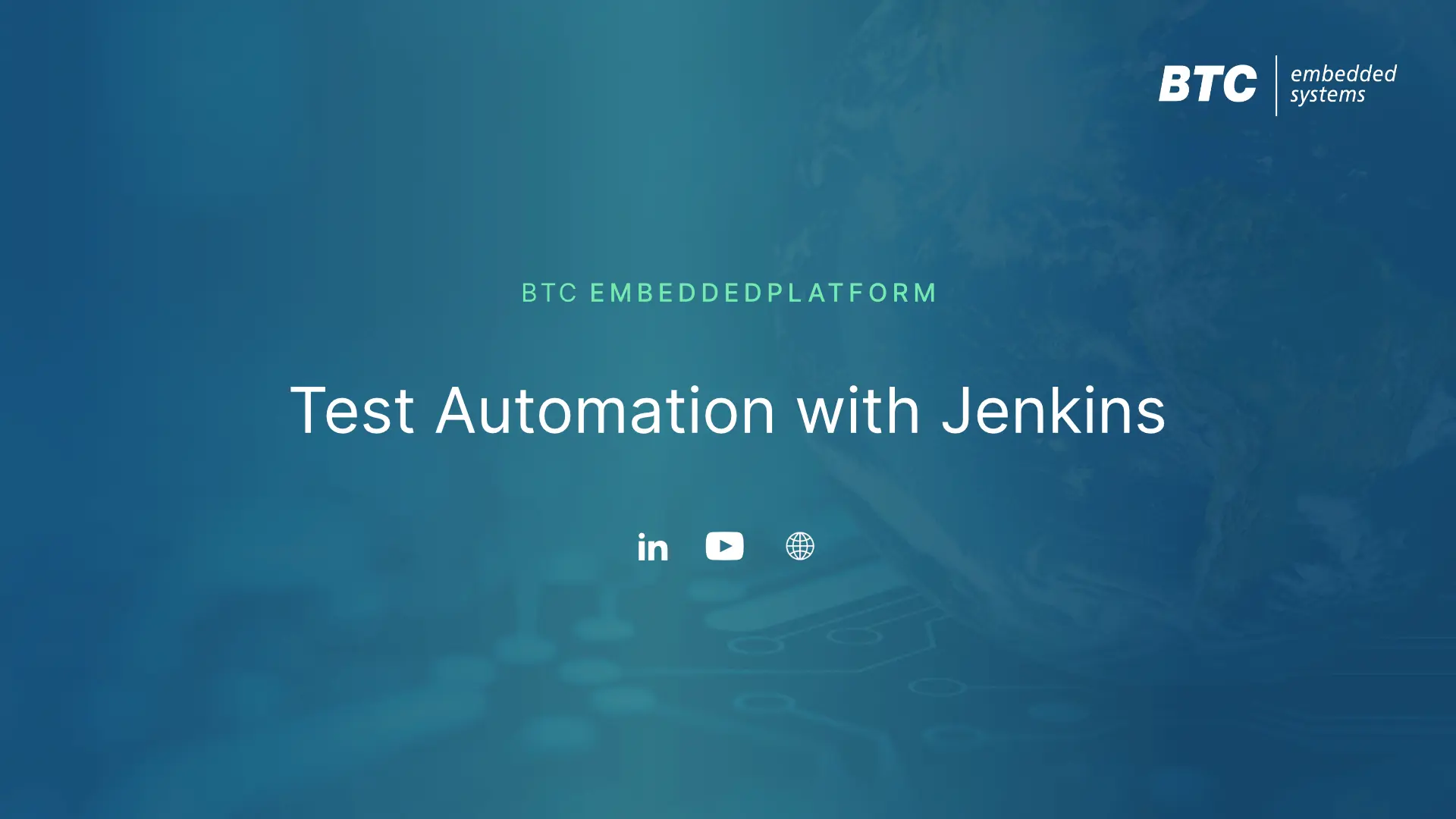

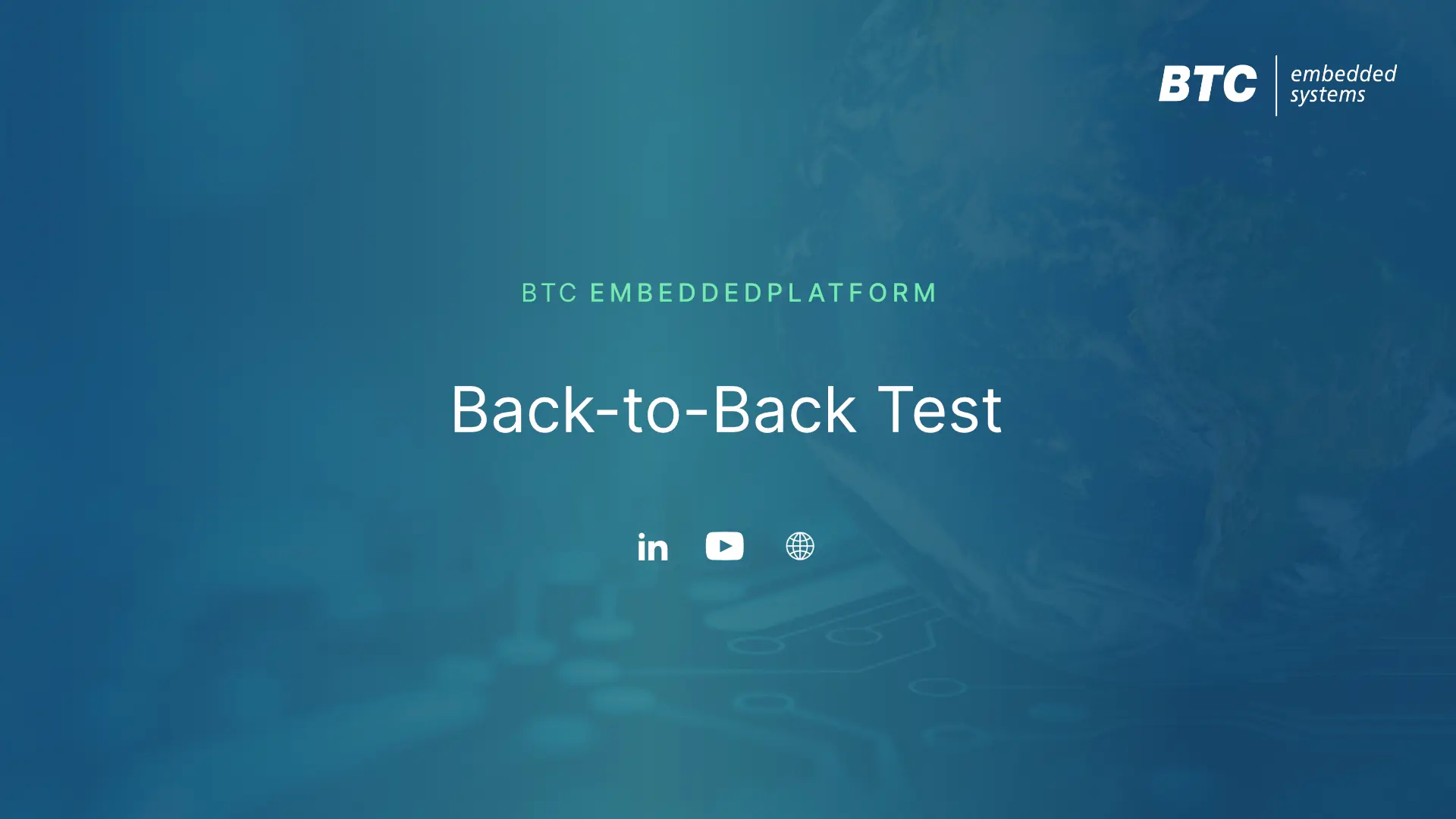

Highly automated and advanced requirements-based testing enhanced by formal methods and automatic test generation
Copyright © 2025 BTC Embedded Systems & BTC Japan